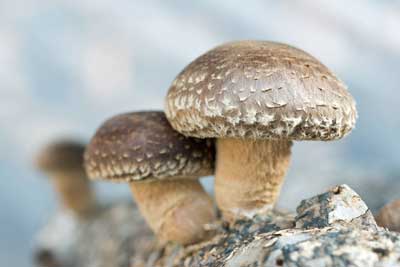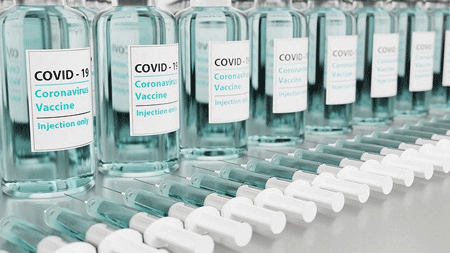



What are Natural Killer (NK) Cells?
Natural Killer (NK) cells are specialized immune cells of the innate, non-specific immune system. Comprising about 10% of white blood cells they are densest in the liver, spleen, blood, lung, bone marrow, and lymph nodes.
In response to an immune threat, NK cells release a class of chemical messengers (cytokines, IFN-y) that recruit T lymphocytes and other immune cells to attack. They also function to communicate to other immune cells to curtail their offenses, thus inhibiting an overactive response.
Why Are They Important?
NK cells provide surveillance for the immune system. They circulate looking for viruses and cancer cells, in particular. Once in range, they release chemical grenades—perforins and granzymes—which poke holes in the enemy cells resulting in cell death, or apoptosis. It is now believed that NK cells have the potential to “remember” previous immune insults, leading to better coordinated immune cell responses with repeat exposure.
What Does ME/CFS Research Say About NK Cells?
Natural Killer cell deficiency is a consistent finding in ME/CFS patients. In fact, some argue that NK cell measurement may be diagnostic (1). There are two types of NK cell deficiency: classical and functional. A classical NK cell deficiency is defined as an absence of NK cells in peripheral blood. This is thought to be a rare genetic condition involving three key genes (MCM4, FCGR3A, & GATA2).
While no concrete study has examined this specifically in ME/CFS, a 2010 study from Nancy Klimas’ group detected a functional deficiency in CFS patients when compared to controls. In their study, NK cell numbers were not significantly different between groups, but markers of activation were far lower in the CFS group (1).
Not mentioned in this study, but worth noting, is that many ME/CFS patients also have perforin deficiency—the grenade-like ammunition of NK cells. This finding, which has been duplicated by others, suggests that NK cell function is most affected in ME/CFS.
Does Poor Natural Killer Cell Functioning Really Matter?
Few would argue that NK cell counts in the high normal range are beneficial for long term health. Studies have found that those with genetic polymorphisms (classical type) that result in deficient NK cells have increased incidence of some cancers and greater susceptibility to Herpes family viral infections (EBV, CMV, HPV, HSV). Furthermore, some preliminary cancer therapies exploit NK cells to decrease tumor size and improve survival (2).
But what effect might this bring for ME/CFS? In Klimas’ 2010 study, the researchers stated that NK cell activity was a strong indicator of illness severity—those with the lowest scores had more severe symptoms (1). Also, the recent trials using Rituximab for ME/CFS highlight the importance of NK cell activity for recovery and symptom relief. These drugs are thought to work at least in part due to their ability to enhance NK cell activity. Clinical trails are still underway using Rituximab for ME/CFS, so it is too soon to tell the exact effects. The side effects and potential dangers of this type of therapy should not be overlooked, however.
In lieu of clinical trials, many ME/CFS doctors opt for natural ingredients to boost NK cell activity. Here are three supplements with well documented evidence of raising NK cell number AND function.
Three Natural Natural Killer Boosters
Colostrum

Pregnant cows provide the nutrient and immune factor rick colostrum some people use to boost immune functioning, including NKN cell functioning
ovine-derived colostrum has been used to enhance immune health for over a hundred years. In fact before antibiotics were developed colostrum, which refers to a densely immune factor and nutrient rich milk produced late in pregnancy, was used frequently to provide immunoglobulins to fight infections.
Among others colostrum contains immunoglobins that target Escherichia coli, Cryptosporidium parvum, Shigella flexneri, Salmonella, Staphylococcus and rotavirus. With antibiotic resistance on the rise, more people are turning to colostrum as a natural alternative to antibiotics.
Colostrum contains a large percentage of Proline-rich Polypeptides (PRP’s), also known as Transfer Factors, which act as intercellular signaling molecules that modulate the immune system. Human studies have shown that PRPs from colostrum induce IFN-y –a robust promoter of NK cell activity.
A small placebo-controlled, double-blinded, randomized crossover trial concluded that consumption of colostrum resulted in increased NK cell release from bone marrow as well as homing of NK cells into tissues (4). Other studies relating to Alzheimer’s research have also highlighted the immunomodulating effects of colostrum (5).
While research studies looking at colostrum’s use in ME/CFS are limited (3), its effects on exercise are intriguing. Runners have been able to reduce their recovery time from peak exercise efforts using colostrum (6) and colostrum reduced gut permeability that occurred as a result of exercise (7)
Melatonin
Although traditionally thought of as a sleep-inducing hormone, the melatonin receptors dotting immune organs and cells indicate that melatonin plays substantial immunomodulatory role in humans as well. Numerous animal and human studies have shown melatonin increases NK cell number and function and production of IFN-y. Melatonin’s immune enhancing effects have led to many interventional studies in cancers (8).
Melatonin also reduces the TLR4 innate immune inflammatory pathway that has been implicated in many inflammatory disorders and may be upregulated in ME/CFS (9). The inflammatory and neuropathic pain models in animals also suggest melatonin may have significant anti-pain properties (10). Studies indicate melatonin secretion in Fibromyalgia is reduced (11) and melatonin can improve fatigue and concentration in ME/CFS. (12).
General sleep supportive doses are recommended at 1-3mgs, but larger doses of 10-20mgs may be required to achieve immune support effects.
- Find out more about Melatonin and Chronic Fatigue Syndrome and Fibromyalgia here
Medicinal Mushrooms

Used for health purposes for centuries, shiktake and other medicine, are now being investigated by modern medicine
Used for millennia in Traditional Chinese Medicine, Western researchers are beginning to catch up and elucidate many of the health promoting effects of medicinal mushrooms. Certain varietals are better studied than others. Maitake, shitake, reishi, and cordyceps species have been studied predominantly and highlight various potent immune stimulating effects including effects on NK cells.
The key components of these mushrooms are fruit body polysaccharide-proteins and mycelia that are administered in broths, distilled tinctures, or concentrated extracts. Several of these mushrooms have undergone phases I, II, and III clinical trials and are used extensively and successfully in Asia to treat various cancers and other diseases (7).
Have you had your NK cell cells assessed? Have you tried these NK enhancers? How did they do?
——————————————
Dr. Courtney Craig was first diagnosed with CFS as a teen in 1998, and recovered in 2010 utilizing both conventional and integrative medicine. Trained as a doctor of chiropractic and nutritionist, she now provides nutrition consulting and blogs about what she’s learned at www.drCourtneyCraig.com/blog.
__________________________________
1 Fletcher MA, et al. (2010) Biomarkers in chronic fatigue syndrome: evaluation of natural killer cell function and dipeptidyl peptidase IV/CD26. PLoS One. 5(5):e10817.
2 Campbell KS, Hasegawa J. (2013) Natural killer cell biology: an update and future directions. J Allergy Clin Immunol. 132(3):536-44. Epub 2013 Jul 30.
3. De Vinci C, Levine PH, Pizza G, Fudenberg HH, Orens P, Pearson G, Viza D. (1996) Lessons from a pilot study of transfer factor in Chronic Fatigue Syndrome. Biotherapy. 9(1-3): 87-90.
4 Jensen GS, Patel D, Benson KF. (2012) A novel extract from bovine colostrum whey supports innate immune functions. II. Rapid changes in cellular immune function in humans. Prev Med. 54 Suppl:S124-9. Epub 2012 Jan 17.
5 Janusz M, Zabłocka A. (2010) Colostral proline-rich polypeptides–immunoregulatory properties and prospects of therapeutic use in Alzheimer’s disease. Curr Alzheimer Res. 7(4):323-33.
6. Buckley, JD.; Abbott, MJ.; Brinkworth, GD.; Whyte, PB. (Jun 2002). “Bovine colostrum supplementation during endurance running training improves recovery, but not performance”. J Sci Med Sport 5 (2): 65–79. doi:10.1016/S1440-2440(02)80028-7. PMID 12188088.
7. Ray Playford et al. (2011). The nutriceutical, bovine colostrum, truncates the increase in gut permeability caused by heavy exercise in athletes. American Journal of Physiology-Gastrointestinal and Liver Physiology, (March 2011).
8. Role of the Toll Like receptor (TLR) radical cycle in chronic inflammation: possible treatments targeting the TLR4 pathway.Lucas K, Maes M. Mol Neurobiol. 2013 Aug;48(1):190-204. doi: 10.1007/s12035-013-8425-7. Epub 2013 Feb 26. Review.
9. Srinivasan V, Spence DW, Pandi-Perumal SR, Trakht I, Cardinali DP. (2008) Therapeutic actions of melatonin in cancer: possible mechanisms. Integr Cancer Ther. 7(3):189-203. http://www.ncbi.nlm.nih.gov/pubmed/21682138
10. Curr Neuropharmacol. 2012 Jun;10(2):167-78. doi: 10.2174/157015912800604489. Melatonin in antinociception: its therapeutic applications. Srinivasan V1, Lauterbach EC, Ho KY, Acuña-Castroviejo D, Zakaria R, Brzezinski A.
11. Indian J Biochem Biophys. 2011 Apr;48(2):82-7.Abnormality of circadian rhythm of serum melatonin and other biochemical parameters in fibromyalgia syndrome.Mahdi AA1, Fatima G, Das SK, Verma NS.
12. Influence of melatonin on fatigue severity in patients with chronic fatigue syndrome and late melatonin secretion.van Heukelom RO1, Prins JB, Smits MG, Bleijenberg G.
13. Wasser SP. (2011) Current findings, future trends, and unsolved problems in studies of medicinal mushrooms. Appl Microbiol Biotechnol. 89(5):1323-32. Epub 2010 Dec 29.











1. Are immunoglobins–G, M and A–products of NK cells? Or are they indicators of NK cell function?
2.What tests show NK cell function?
3. Explain how Rituximab increases NK cell function. From what I read when that research was first done, Rituximab temporarily kills of the B cells of the immune system, which carry a lot of the memory of the immune system. So then, if the immune system has a pattern of autoimmune attack, with Rituximab, it “forgets” to do this, and, as long as the B cells are greatly reduced, the autoimmune attack subsides. Is this correct and where do NK cells come in.
THANK YOU
Cecelia
I have to agree with you on item #3, that if the immune system has a pattern of autoimmune attack, that with Rituximab, it “forgets” to do this, and, as long as the B cells are greatly reduced, the autoimmune attack subsides. This is the reason symptoms lessen and it is not because Rituxiimab increases NK cell function. My immune system is always on high alert to “anything” it deems foreign (viruses, bacterias, chemicals etc). It is in a perpetual state of overdrive, that lends me to experience debilitating malaise and exhaustion; an over-reaction. My over-response to an immune threat causes my strong NK cells to release a class of chemical messengers (cytokines) and immune cells ( T lymphocytes) to attack the invader; not the opposite.
Supposedly mistletoe therapy increases NK cells.
Please, please mention the research article citations on the above. Some parts of the mistletoe are thought to be toxic; the products containing this should be mentioned by name so they can be vetted. People who have pets are warned to keep mistletoe away from them because certain parts can be toxic (berries?). We are the biggest fans of natural nontoxic products and just want to ensure they are safely used 1.) so the anti-natural lobbie$$ do not jump all over them; and 2.) that the docs and hospitals know what we take and when, so they do not interfere with absorption of pharma meds like Synthroid and Cytomel, for example.
Some parts of medicinal plants are fine while other parts of the same plant are toxic; some toxic plants must be highly processed and then become excellent foods; some of these are tropical food staples that also have highly medicinal effects when processed.
Cecila,
Good questions!
1. Immunoglobulins are made by B lymphocytes, not NK cells. Immunoglobulins are part of the specific, acquired branch of the immune system while NK cells are generally considered non-specific.
2. NK cells can be measured in standard blood testing.
3. The mechanism of how Rituximab increases NK cell activity is not entirely known yet. NK cells function non-specifically against viruses or cancer cells but they also have specialized receptors on their surface for immunoglobulins. So these antibody drugs, like Rituximab and others, appear to increase “antibody-dependent” cellular cytotoxicity, which is a function of NK cells.
I wonder if there’s a separate test to ask for re the markers of activation? I doubt most docs would know to look for this…….
I find this very interesting. Well over 20 years ago i was tested for various things by someone who said I had no NK cells, but he did not explain what that meant and if it was good or bad. I assumed bad. Any other doctor I told that to was not interested. Unfortunately he did not put it in writing and I have no idea what test he used and if it was medically recognised or not.
For the last 20 years I have been one of those people who only gets one cold a year, and virtually no other minor illnesses. (I class the ME as a major illness! 🙂 ) For years I put that down to taking echinacea and then was told that some people with ME fall into this category and that it’s a result of a faulty immune system and the body not recognising the illnesses.
In the last 6 months I have felt as though I have turned a corner and started improving. I am currently experiencing my second cold/flu-type illness in 2 months! I would love to know what is happening to my NK cells, but I don’t think the local UK National Health Service would test me for that.
I was a bit like this, thinking I wasn’t ‘catching’ what was going around, but I now understand (since developments around NK cells for me in Dec) rather than not actually getting colds etc, that there was no evidence of an immune response – no fighting off the enemies. I now include in my prescribed supplement protocol (Integrative medicine) Mushroom 6 by BioCeuticals, also Hyperthermia treatment has I beleive kickstarted my immune response that is rebuilding :). I am seeing cognitive improvements and maybe a tiny bit of mobility. I functioned basically at a 2/10 or less in Dec 🙁 but consider myself now at 4/10 and consider this as living not just existing.
I think the NK discoveries are key research.
great article again
🙂
Good article, Dr. Craig. Have you or other practitioners been using NK cell measurements as a diagnostic aid for CFS, or is this still just speculative? Can you suggest a way that people with dairy allergy can reap the benefits of colostrum? Thanks!
According to most of the info and research I’ve done on colostrum, it’s thought that even those sensitive dairy usually don’t react to colostrum.
Even though I’m vegan, this is the one exception I take. I use Symbiotics immune formula. I have found it very helpful. You need to take it early in the day, as it gives energy. It is noted to be an alternative to IVIG. Since I have Hypogammaglobulinemia, low IGG levels, this is a good thing for me.
I dont do well, at all, on melatonin or any mushroom products. Both make me feel horribe. Nice the colostrum helps. One other benefit that literature mentions is a calming effect to the nervous system.
I try to eat as nutrient healthy as I can. But sometimes supplements are the extra boost we may need to get our body to go in the right direction.
With colostrum, it’s suggested to front load. This can cause a sort of herx reaction. I find it better to go lower and slower. I no longer need to use it daily. But I do feel its one thing that I need.
Issie
Hi Diana,
Colostrum has minimal lactose or casein. I haven’t read anything in the literature of it being allergenic to those sensitive to dairy.
Typical NK cells measurements in blood only provide the number of cells at a single moment in time and do not show those cell’s function over the long term. This is a limitation like any other potential cytokine or immune marker.
Dear Courtny, Rituximab as I last looked up if VERY expensive. Not a drug that the majority of us CFS/fibro sufferers can afford even if we do have some kind of insurance! Is there any other affordable drugs out there in use or none? What kind of success have you seen with your protocol? Does it include Rituximab? It’s a shame we have no access to an affordable cure. The drug companies have us wasting money on just treating our ailments other than curing our illness. There are thousands of us suffering every day and many taking their lives because the doctors no little about the disease and many will not give adequate pain medications. It leaves them devastated and depressed beyond help with no hope.
Is your protocol reasonably priced for most of us to afford? And how long would one take on average to see results? (Perhaps that would depend on the length and severity/age of the patient?) Can you give us some feedback on where and how to start? Mostly, cost effective wise I should say. Many of us have poured out thousands of dollars for medications that don’t work or have serious side effects. When will this insanity stop??! Your comments are well appreciated by us all!
Hi Susan,
I definitely can’t recommend Rituximab nor is that the intent of this post. I just find it thought provoking that this drug has an effect on NK cells. I much prefer to stick with safer, natural strategies to improve CFS symptoms over risky, expensive pharmaceuticals. I do find good results using targeted, personalized supplementation. Not to mention it is beyond my scope of practice as a doctor of chiropractic and nutritionist to prescribe pharmaceuticals!
Thanks for reading.
Courtney,
Shortly before the severe respiratory infection that precipitated my “journey” with ME, an Ophthalmologist attributed my sudden inability to wear contact lenses after many years to overactive Killer T Cells. He recommended leaving my contacts out for a period of six months (which I did), after which he expected my Killer T Cells would return to normal, no longer recognizing my contacts as a foreign material to be fought. This didn’t happen.
At some point after learning about the immune abnormalities associated with ME, I wondered if the contact lens/eye issue actually indicated the beginning of the illness process. Similar to Diane’s situation described above, I have not had the flu even once since becoming ill with ME. I’ve had three colds in 25 years — the last one 9 years ago.
Are the NK cells mentioned in your article likely to be the same as what my Ophthalmologist described as Killer T Cells?
Karen,
NK cells are not the same as Killer T cells. Killer T cells are also known as cytotoxic T cells or CD8+ cells.
Karen – interesting. I’ve had eye issues episodically where I can’t wear my contacts bc my eyes are so dry/irritated/bloodshot.
There are two types of natural killer cells . Dim and bright ones.
Pwme have normal no.s of dim ones and low no.s asnd low functionality of bright ones. The bright ones have KIR receptors (kill it right? -hehe ) and these receptors are abnormal in m e, (and different to other autoimmume condirions?) This is my basic understanding of the NCDNED research.
My standard NK labs were normal, the other ones for research were well below par…they think this IS a biomarker, pretty cool hey.
.there is another mab drug, Daclizumab which has been sucessfully trialled in progressive severe MS and raises the no. And functionality of bright NK cells… i think ill try the magic mushrooms first! 🙂
Oops i forgot to say thank you Dr Craig, great article, its really interesting to read of natural ways to boost these cells 🙂
Thanks Sarah, I didn’t know about Daclizumab…
I found it a few years ago by accident when llooking for pictures of bright natural killer cells – looking again, there seems to have been a lot of adverse allergic type effects in the ms patient group. Thats my msin concern with all mab drugs.
I know some ME-patiënts who had NK-cel dysfunction. But even when their NK-cel function turns in the normal range they stay very sick.
+
I’ve heard the same for a couple of couple. I’m sure others do improve but there’s no doubt that NK cells are just one piece of the puzzle.
I searched the Phoenix Rising forums for colostrum, melatonin and mushrooms, but the threads returned did not sound very encouraging. I think I’ll wait for something more widely endorsed before trying anything.
In thinking about how Rituximab could kill B cells, but boost NK cells – maybe the NK cells are increased as a natural compensation mechanism to make up for the loss of the B cells.
Another interesting result of Rituximab was the delay of symptom relief after killing the B cells. Somehow the immune system must need time to readjust itself. Then we see the subsequent return of the illness eventually, so the EBV or virus must reestablish itself because it is still present and the same deficient immune system can’t cope with it.
Great article. I have had really good luck with medicinal mushrooms, cordyceps and reishi in particular. Strangely my NK cell function has went from 6 LU to 3 LU (both of which are terribly low) while my functionality has improved.
I tried colostrum, didn’t work for me; my gut seems to be too sensitive for it (goat and cow colostrum).
Good results with Japanese Reishi, just the one medicinal mushroom. A mixture of more than one is bad for my gut again; also it is important to use a high quality brand, there is a lot of rubbish out there. Reishi helps me in that there is less tension in my head and it alleviates the fatigue somewhat.
Ria,
Glad you’ve found some improvement with Reishi. I got my NK cell count up a bit with Maitake. I couldn’t agree more that there is a lot of rubbish out there. Everyone should be very careful when buying any supplements. Look for USP, GMP, or other regulatory markers of purity. Additives are frequently added too like gluten, sugars, and chemical fillers. The paper I reference above regarding medicinal mushrooms mentioned that purity is a major problem in many of today’s mushroom supplements.
Thanks for reading.
Anyone had luck with Beta Glucan?
I did not tolerate LANK, mush. mixture, prescribed by Dr. Enlander.
Also, what are specific brands that can be trusted-
-for mushroom supp.
– for colostrum, as well (now that I know it is generally tolerated by those, with dairy allergy).
Thanks!
Mikei Reishi is a very good brand. Don’t know about the price though in the US.
Thank you, Ria! Galia
Melatonin has a really bad effect on me – even a tiny dose (compared to those mentioned here) of 0.37mg – one eighth of a 3 mg tablet – leaves me feeling lousy and brain dead for a couple of days. I tried it in the hopes of improving my sleep. Any ideas? Thanks.
That must mean something…I would think any bad reaction to a substance that’s supposed to work must mean something – I wish I knew what it was!
Check out Dr. Craig’s blog on sleep issues for some different suggestions
Sorry to hear that, Sara. Melatonin has an excellent safety record but many CFS patients are very sensitive to certain things–especially those that also have MCS. My only suggestion would be to maybe try a different brand as some companies don’t follow strict purity standards. It could be a chemical additive or filler in the product that you are reacting negatively too and not the melatonin itself.
Best!
Dr. C
About melatonin. There is actually supposed to be a naturally-occurring back-and-forth recycling (to some extent). From tryptophan to serotonin to melatonin; then some sort of recycling back of some amount even if not all, back to . . . what, I wonder?
Taking melatonin as a finished product is cutting out the whole process which is supposed to precede its naturally being produced in the body.
But . . . forgot to say . . .
in many or most or all of those with CFS, something is interrupting or blocking the ability to make or re-use part(s) of serotonin and melatonin. Well, blocking ability to make both of those, since they are on a pathway. And also interfering with ability re-use any part of melatonin.
So it’s not as if starting at the beginning and taking extra tryptophan will necessarily solve anything. For some, maybe it would be of some help.
The point is that only taking melatonin, the finished product, leaves out other steps in what should be a pathway, a cycle. May explain why it doesn’t agree with some people.
Having numerous autoimmune relapses while travelling in different time zones, I finally found the cause – melatonin! On the back of one bottle by ‘Source Naturals’ I saw a notice recommending one not take melatonin if one has immune system problems, so I called the company in Santa Cruz. They said that melatonin is not good for autoimmune conditions as it will bring down your cortisol level. So after stopping taking melatonin, I hardly ever have major auto immune flare ups like I used to.
Ha! You never know…:) Thanks for passing that on.
Dr. Craig, can you explain scientifically how pwme can show both autoimmune activity and decreased immune activity? For example, I’ve had high EBV titers for years, caught every URI imaginable when my kids were small (LDN has helped with that), but have two low autoimmune markers. From this perspective it’s difficult to treat.